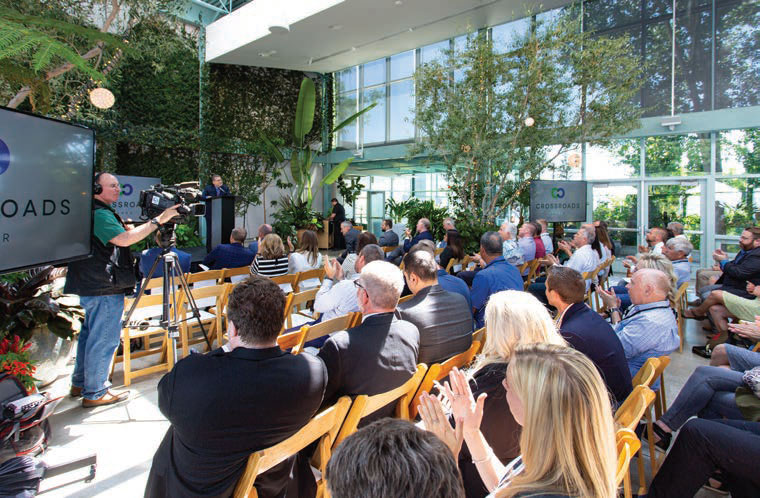Crossroads Paper, a new Utah-based company, announced at a recent press conference at Red Butte Gardens in Salt Lake City that it plans to construct a paper mill in Northern Utah that will use recycled fiber to produce 1,000 tons of packaging paper per day. Officials said that they expect to be in production by early 2022.
Crossroads Paper CEO John Sasine told a crowd of civic leaders, local recycling industry representatives and news representatives that the 80-acre plant will use 100 percent recycled fiber like, cardboard boxes and existing waste paper supplied primarily by the local recycling industry.{mprestriction ids="1,3"} The output from the plant will be used to make new boxes for manufacturers, farmers and e-commerce companies.
“For the past several years, our recycling ecosystem has undergone a series of challenges,” said Sasine. “We are here to share with you a different and hopeful view.”
“Utah has never had a papermaking operation or a recycled paper mill like this one,” Crossroads said in a release. “Because used cardboard boxes are the main source of raw material, no trees will be used to make paper at this modern facility. The project will keep waste materials out of landfills, reduce greenhouse gas emissions and provide consumers and cities a beneficial way to recycle wastepaper.”
Utah Lt. Gov. Spencer J. Cox and Val Hale, executive director of the Governor’s Office of Economic Development, took part in the announcement event.
The new company said that the machinery to be installed at the facility will come from Valmet Inc. of Finland, a leader in specialized recycled papermaking equipment.
Crossroads said that its process will not require on-site pulping and bleaching, which are standard at traditional paper mills. These processes require large chemical inputs and are often significant polluters with strong odors in the vicinity of the mills. By limiting production to recycled materials and adding on-site water treatment facilities, Crossroads Paper said will dramatically reduce chemical usage and water emissions and the accompanying unpleasant odors.
Sasine told attendees at the announcement that Crossroads had looked at other states to place its new mill. “Salt Lake and the Intermountain West is a unique place, because of the rapid economic growth, the environmentally focused population and the expansion of manufacturing,” he said. “When those three things combine, the industrial footprint of a paper-producing operation starts to get the critical mass that it needs.”
Crossroads will invest private capital of $320 million to build the mill and will initially hire 110 people. Sasine said he expects the plant to produce over $1 billion in revenue in its first 10 years. He said the cost includes infrastructure improvements, civil construction and water treatment facilities. Construction is expected to begin later this year on a site yet to be determined. Crossroads said it is looking at two possible properties in the Salt Lake City area. {/mprestriction}








